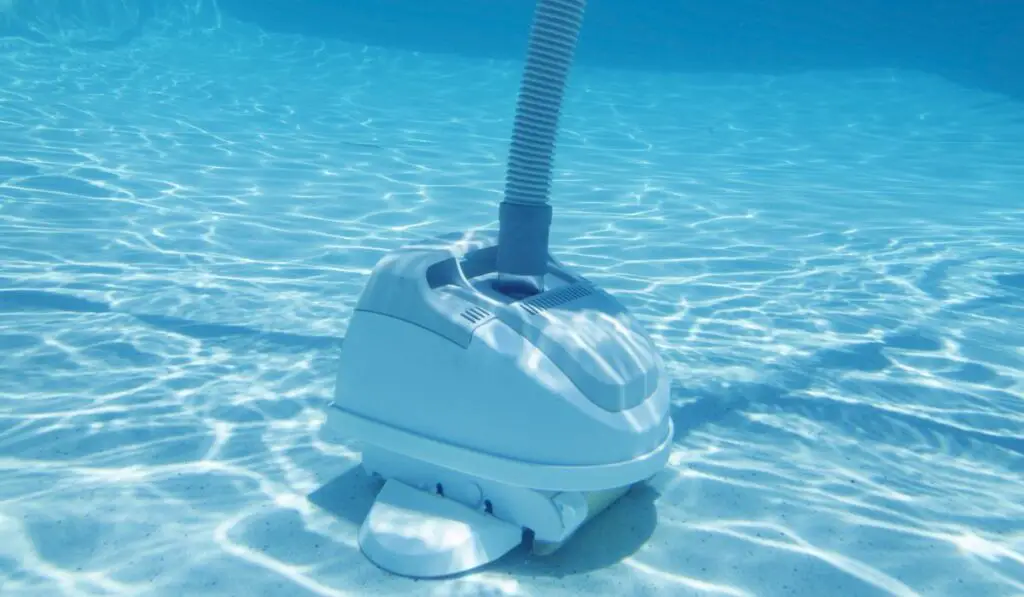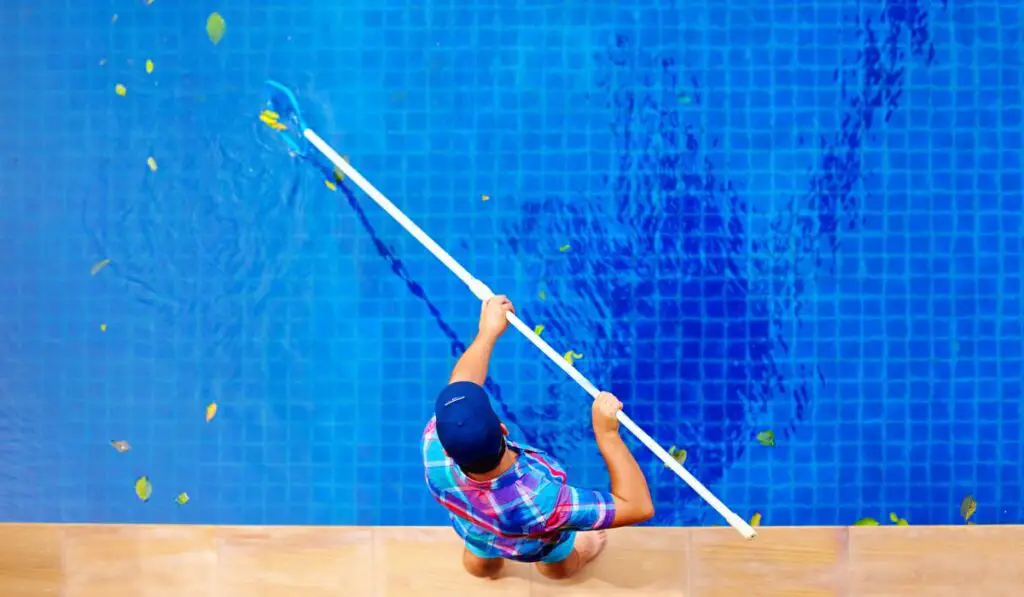The total time it takes to clean a pool primarily depends on the size and condition of the pool. If you clean your pool every week, then it’ll take much less time to clean each time, even if your cleaning routine includes scrubbing, skimming, vacuuming, and adding chemicals. However, if you’ve just opened your swimming pool for the summer, then the process might take longer.
An automatic pool vacuum will take around two to six hours to clean your entire pool, depending on the speed of the vacuum. On the other hand, manually vacuuming a pool can take anywhere between 20 and 45 minutes.
It’s advisable to conduct bi-weekly chemical checks to ensure the water in your swimming pool is properly balanced. With this regular chemical check on lock down, physical maintenance of your pool should take no more than 30minutes a couple times a week. Let’s look at how long different cleaning methods take and what other factors affect the time it takes for you to clean your pool, so you can get it done faster.
What Are the Two Methods for Cleaning a Pool and How Long Does Each Take?

While your pool filter regularly captures and removes most of the debris that contaminates your pool, it can’t get rid of the dirt and contaminants that don’t pass through your pool’s filtration system in the first place.
For instance, your pool’s filter may not be able to remove the dirt that settles on the sides and bottom of your pool. Luckily, you can eliminate this dirt and completely clean your pool by using a pool vacuum. There are two main types of pool vacuums, and each one takes a different amount of time to clean the pool:
Automatic Vacuum
The total amount of time it takes an automatic pool vacuum (on Amazon) to clean your pool heavily depends on the speed and setting at which the vacuum runs and the condition and size of your pool.
It’s best to let your vacuum run until it cleans your entire pool, including all its sides and bottom. This can take anywhere from two to six hours. And remember, the better the condition of your pool — for instance, if you vacuum weekly — the less time it will take.
Manual Vacuum
Like with an automatic vacuum, you should also run a manual pool vacuum until you’ve gotten rid of all the visible dirt and debris that’s settled on the sides and bottom of your pool.
If you have a small, well-maintained swimming pool, you can manually vacuum and clean your pool in around 20 minutes. However, if you have a larger pool or an extremely dirty small pool, then the process might take about 45 minutes or more.
Which Factors Affect the Time It Takes to Clean a Pool?
Cleaning a swimming pool can seem incredibly daunting, but with the right knowledge and tools, you can do it relatively easily and quickly. There are several different factors that affect the time it takes to clean your pool, and understanding each of them can help you plan ahead and ensure a clean swimming pool in no time:
Size of the Pool
Needless to say, a large pool will take a longer time to clean than a small one, especially if you’re also planning on brushing the walls.
Season
It’s much more difficult to maintain and clean a swimming pool during summer because the intense heat promotes algae growth. For this reason, you’ll need to spend more time balancing the water’s chemistry and cleaning the filters.
On the other hand, you’ll need to spend a lot of time scooping up leaves and cleaning the water during winter and fall. You’ll also have to ensure that the skimmers aren’t clogged with leaves or other large debris.
Type of Filter
The filter type plays a huge part in determining total cleaning time. Compared to cartridge filters, sand filters are much quicker and easier to clean.
Tips to Help Clean Your Pool Faster

As much as everyone enjoys jumping into a pool, nobody really likes cleaning one. Fortunately, there are a few tips and tricks that can help make the entire process quicker and more efficient:
- Clean the stairs, bottom, and walls of your pool with a wide stiff brush or a wire brush. It’s better to check with a pool care professional before using one, however, as they damage some pool surfaces.
- Use a net (on Amazon) to capture all the floating debris, such as insects, leaves, and other contaminants. Check your skimmers as well, and thoroughly clean them if they’re dirty or clogged up.
- Check and clean your inline filters and skimmer baskets. Run the pump for at least eight hours to ensure proper chlorine circulation. It’s best to run your pump for eight hours during the winter and 12 hours in the summer.
- Check your pool water’s pH level with a test kit (on Amazon) and balance it as needed. Add chemical products, such as anti-algae, flocculants, chlorine, and flocculants, according to the frequency indicated by the manufacturer.
- Try to avoid using detergent and soap, as they can negatively react with chlorine.
- Make sure you always add anti-algae cleanser (on Amazon) at the end and the beginning of the pool season.
